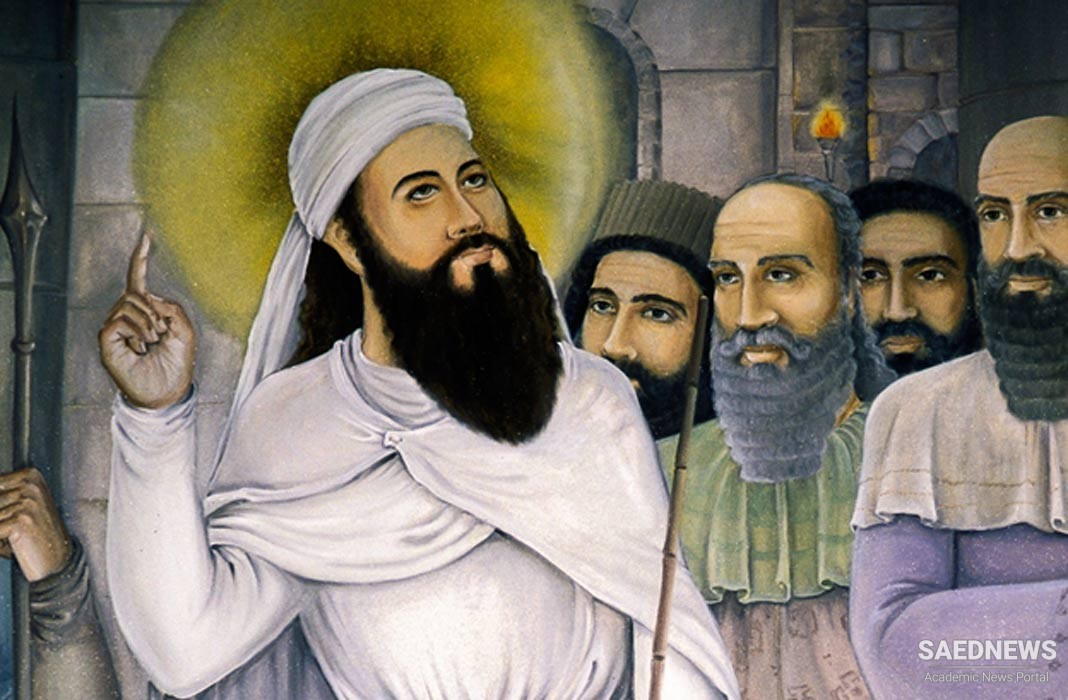The most frequent of all the derivatives of the verb man- is manah “mind, thought,” and especially vohu manah “good mind, good thought.” One of the functions of the thought is, apparently, as “receptacle” of the inspiration (manyu, see above). Thus, once he has obtained the inspiration, the poet will question or converse with his good thought to find the knowledge now contained therein about how to perform his ritual and will then no doubt interpret it, that is, decide what it means and how to use it. During this questioning and consultation, by virtue of his “readiness to listen,” the poet will then hear the “announcements” of Ahura Mazdâ: In the Old Avestan creation myth, Good Thought also appears to represent the covering of the day sky, which is stretched out by the poet-sacrificers. In the Young Avestan texts, Good Thought can also be used to refer to a living being, and in the Pahlavi texts Wahman is said to be the protector of animals (Source: Introduction to Zoroastrianism).


 Ahura Mazda the Originator of Universe in Ancient Persian Worldview
Ahura Mazda the Originator of Universe in Ancient Persian Worldview














































